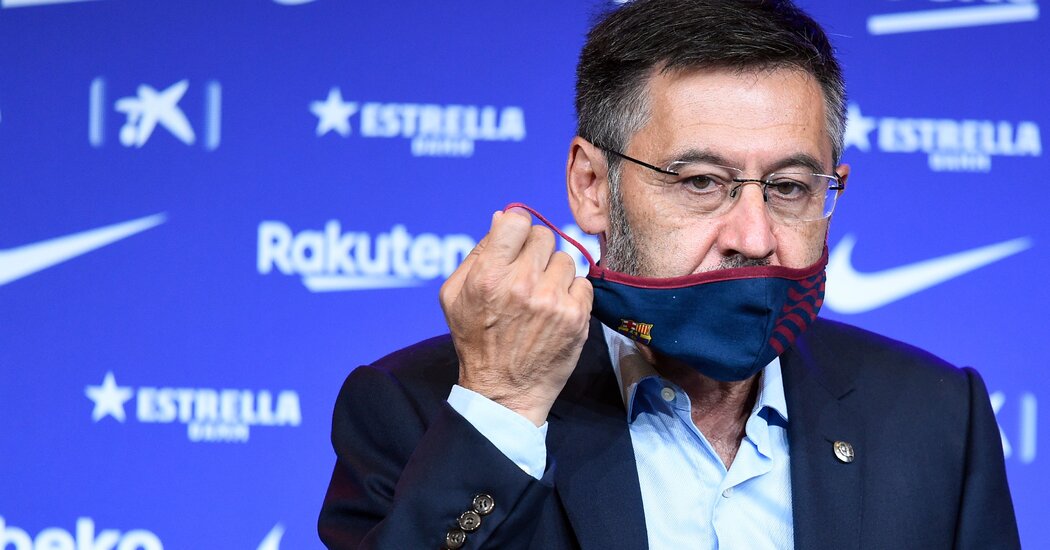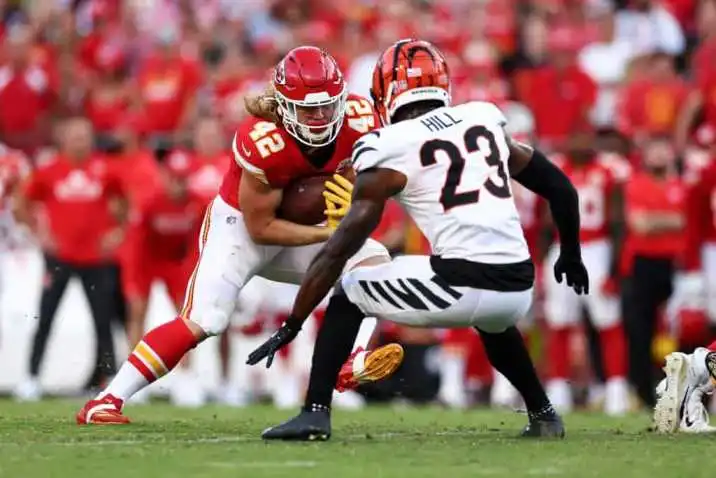
20,000 Sign On to Campaign to Oust Barcelona’s Board
A group of F.C. Barcelona members has succeeded in its race to collect the thousands of signatures required to force a vote that could lead to the ouster of the club’s unpopular president, Josep Maria Bartomeu, and the board that has led the team into the biggest crisis in its recent history.
The group — a collection of fan organizations that aligned specifically for the effort to push out Bartomeu — hopes that, if the signatures are accepted after a review, a no-confidence vote will be held as soon as next month.
Marc Duch, a member of the group calling itself Més Que Una Moció, a play on Barcelona’s “more than a club” slogan, said it had delivered more than 20,000 signed forms — just over 4,000 more than were required — to the team’s headquarters on Thursday. The club confirmed that it had received 20,874 forms; it now will form a so-called vote of censure board, which will have 10 days to authenticate — or reject — each form, which according to club rules had to be hand-signed and accompanied by a copy of each member’s identification document.
Local restrictions on public gatherings because of the coronavirus, including a ban on spectators at Barcelona’s Camp Nou stadium, had complicated the already difficult task of accumulating more than 16,520 signatures, or 15 percent of the club’s eligible voter base, within two weeks. But such is the strength of opposition to Bartomeu and the club board that the group comfortably surpassed the required tally by Thursday’s 6 p.m. deadline.
Collecting the signatures required a complex logistical operation in which stacks of forms were left at more than 130 locations across Catalonia, the region in northeastern Spain that is home to Barcelona. Once the forms were signed and the required documents were attached, the campaigners then had to transport them back to the group’s headquarters to be verified and counted.
“We had been receiving lots of papers coming from those places that they were sent, thousands — 5, 6, 7,000 a day — and then receiving 300 or 400 people we had not previously registered at our office,” said Duch, who had taken time off from his full-time job as an accountant to focus on the campaign. As the deadline neared, workers stayed later and later as more disgruntled club members dropped by with their forms. “Yesterday we closed at 11:30 p.m.,” Duch said, “and that was the final push we needed.”
Supporter anger at Barcelona has been growing for some time as poor results on the field competed with boardroom infighting for headlines in the Spanish news media. But the campaign to oust Bartomeu reached a new stage after a disastrous week in August, in which the team was thrashed by Bayern Munich, 8-2, in the Champions League and Lionel Messi, perhaps the best soccer player of all time, announced his intention to leave the club. (Messi later reversed course and said he would stay, but in doing so blamed Bartomeu for breaking his word to him.)
Voters, Duch said, signed on because they could not stomach any more humiliation for a team that not long ago was seen as the gold standard in the world’s most popular sport. “They are saying, ‘I’m tired of them and I don’t want them to ruin it anymore, I don’t want them to pull the club into the abyss.”
Removing a board that has been duly elected is no easy task, though. If Barcelona agrees that enough signatures have been collected — Duch expects between 5 and 10 percent of the ballots will be rejected — a minimum of 10 percent of Barcelona’s more than 140,000 members must participate in the vote of no confidence. In that vote, the motion would need a two-thirds majority to pass.
Still, the censure motion appears to have attracted widespread support, including from three candidates seeking to replace Bartomeu, whose current six-year mandate does not expire until next spring, and also the former president Joan Laporta, who oversaw the team’s rise to success under the former coach Pep Guardiola and a clutch of homegrown talent that included Messi.
Victor Font, a technology entrepreneur and one of the front-runners to replace Bartomeu, has pressed the importance of immediate change, suggesting that if elections are not held before the end of the year, Messi could renew his effort to leave the club. Messi can sign a precontract agreement with another team as soon as January; Manchester City was among the suitors who expressed interesting in signing him last month.
Whoever emerges as Barcelona’s leader will face a slew of immediate issues beyond the fate of Messi. The club’s finances, including one of the world’s largest player payrolls, will need to be re-evaluated; key sponsorship agreements — including with the team’s principal sponsor, Rakuten — will be up for renewal; a contentious and hugely expensive stadium refurbishment will need to be addressed; and, perhaps most important for the team’s fans, the roster will need to be rebuilt. But so will the club’s battered image.
Bartomeu took over in 2014, stepping up from a vice president’s role after his ally Sandro Rosell was forced to step down amid claims of improper conduct in the signing of the Brazilian forward Neymar. Earlier this month, the Spanish newspaper El Mundo reported that the police in Catalonia were investigating Bartomeu for corruption.
Should Bartomeu’s opponents succeed in ousting the current leadership in a vote that will also be affected by pandemic restrictions on public gatherings, elections would have to take place within three months. Until then, the team would be in the hands of an emergency board, which would not be able to take any major decisions.
The rebel campaigners, though, see a short-term disruption to the club’s operations as worthwhile. Duch pointed out that the numbers of signatures were far higher than any of his group had expected.
“I’m surprised by the size of the final number,” he said. “We were expecting it to be close.”
For now, it is a case of waiting. The results of the authentication process could be announced before Barcelona plays its first game of the new league season on Sept. 27.








